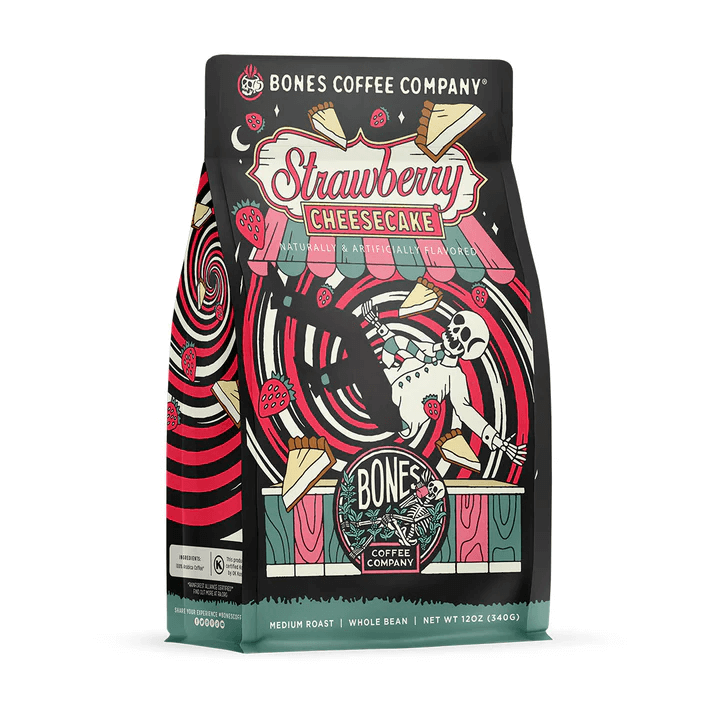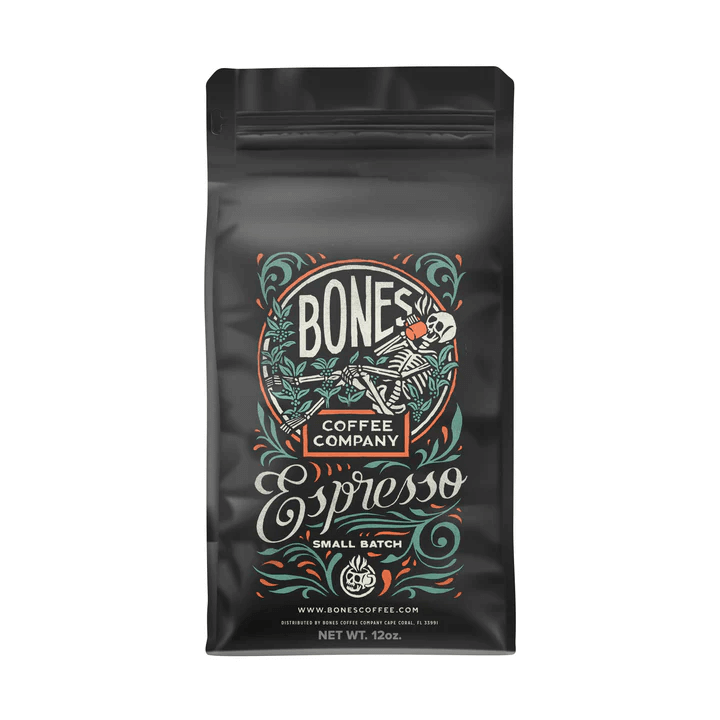If you can’t start your day without that morning cup of coffee, we get it. The smell, the taste—it’s irresistible. But what if your favorite brew is causing some unpleasant side effects, like bloating or stomach discomfort? It’s a question many coffee lovers are curious about.
In this article, we’ll break down how coffee might be affecting your gut and whether it could be the reason for those post-coffee belly woes. Grab a cup (or maybe wait until you’ve read this), and let’s dive in!
Why Do Some People Experience Bloating After Drinking Coffee?
While many of us love our daily brew, some experience an uncomfortable bloating sensation after a cup of joe. Let's break down the common reasons for this and how it may affect your stomach.
Increased Stomach Acid
Coffee stimulates the production of hydrochloric acid in your stomach, which, for some people, can lead to irritation and coffee bloat. Its high acidity may aggravate sensitive stomachs or exacerbate pre-existing digestive issues, making bloating more likely for those individuals.
Speeding Up Digestion
For those who regularly drink coffee, the beverage acts as a natural stimulant for the digestive tract. Coffee not only stimulates the production of stomach acid but also stimulates bowel movement, sometimes causing the digestive process to speed up too much.
This can lead to incomplete digestion, creating gas and resulting in digestive health issues like bloating and discomfort.
Impact on Gut Bacteria
Coffee can play a dual role in gut health, depending on the individual. Its polyphenols, natural antioxidants, can encourage the growth of good gut bacteria like Bifido bacteria, promoting a healthier gut microbiome.
However, for some, coffee may disrupt the balance and lead to digestive discomfort. For those sensitive to acidity, choosing low-acid coffee options may help maintain better gut health while still enjoying their daily brew.
Additives Like Milk and Sugar
Adding milk, cream, or sugar to coffee can also lead to bloating, especially if have lactose intolerance or a sensitive stomach.
Using artificial sweeteners can also trigger gut issues, as they are known to cause bloating in some individuals. If you often feel bloated after your coffee, opting for lactose-free or plant-based milk and avoiding artificial sweeteners may help.
How to Tell If It’s Really Your Coffee
Determining whether coffee is the cause of your bloating can be a bit of a detective game, but with a few strategic steps, you can uncover the truth.
Start by keeping a food and drink diary. Note when you consume coffee and any symptoms that follow. This can help identify patterns and pinpoint coffee as a potential culprit.
Along with bloating, you might also experience other digestive symptoms. Understanding these can help you enjoy your cup of joe with minimal discomfort.
- Acid Reflux: Coffee can relax the lower esophageal sphincter, potentially leading to acid reflux or heartburn. This is more common in individuals sensitive to caffeine.
- Stomach Irritation: The acidity in coffee can irritate the stomach lining, leading to discomfort or even gastritis in sensitive individuals.
- Diarrhea: For some, coffee acts as a laxative, stimulating bowel movements. This can be beneficial for those seeking regularity but may lead to diarrhea if consumed in excess. While some may think this aids weight loss, it's mostly water loss, not fat.
Consider the timing of your symptoms. Bloating caused by coffee often occurs shortly after consumption, typically within 30 minutes to a couple of hours. If you notice a consistent pattern, coffee might be the trigger.
Pro-Tip: Avoid drinking coffee right after eating high-FODMAP foods (like beans, garlic, or onions). The combo can trigger bloating and stomach discomfort. Opt for low-FODMAP snacks or wait a bit after eating before sipping your brew! |
Are Certain Types of Coffee More Likely to Cause Bloating?
Understanding how different types of coffee might affect your digestive comfort can be as intriguing as exploring a new roast.
While the allure of a freshly brewed cup is undeniable, some variations in coffee preparation and composition can influence the likelihood of experiencing bloating.
 |  |
French Vanilla | 12oz | Strawberry Cheesecake | 12oz |
 |  |
|
|
Different varieties, such as Arabica and Robusta, have distinct characteristics that can influence their impact on digestion.
Arabica coffee beans, known for their smooth and complex flavors, typically have lower caffeine content and acidity compared to Robusta beans, which are more robust and bitter.
For individuals who experience bloating with frequent coffee consumption, opting for black coffee made from low-acid, dark roasts can be a smart choice. This switch allows you to enjoy your brew while minimizing digestive discomfort.
Brewing Methods and Their Impact
The method by which coffee is brewed can significantly affect its acidity and oil content, both of which are factors that may contribute to bloating, especially for someone who regularly drinks coffee. Here’s a quick look at how different brewing techniques stack up:
Brewing Method | Acidity Level | Oil Content | Potential Bloating Risk |
Espresso | Medium | High | Moderate |
French Press | Medium | High | Moderate |
Cold Brew | Low | Low | Low |
Drip Coffee | Medium to High | Medium | Moderate |
Espresso, with its concentrated nature, tends to have higher acidity and oil content, which might increase the risk of bloating for some individuals.
Bones Coffee’s Espresso, crafted from South-Central American beans, offers a robust, full-bodied flavor with low acidity, making it a smoother choice for those wary of the usual coffee-induced discomfort. You'll even enjoy subtle hints of citrus and cocoa.
On the other hand, cold brew, known for its smooth and mellow profile, is typically lower in acidity, making it a gentler option for those with sensitive stomachs.
Fun Fact: Cold brew coffee is steeped in cold water for 12-24 hours, resulting in a brew that is up to 67% less acidic than hot-brewed coffee. |
Minimizing Bloating When Drinking Coffee
To enjoy coffee without the unwanted side effects, consider the following strategies:
Choose Low-Acidity Coffee
These options can be gentler on the digestive system and reduce the likelihood of bloating. Look for labels that specify "low-acid" or try cold brew, which is typically less acidic than hot-brewed coffee, making it easier for your stomach to handle.
 |
Espresso | 12oz- Full-bodied, robust espresso with low acidity - Notes of citrus and cocoa for a smooth, flavorful experience - Available in a fine espresso grind for espresso drinks |
Different brewing methods can affect the acidity and strength of your drink. For instance, using a French press might yield a smoother cup compared to a drip coffee maker. Experiment to find what works best for your stomach.
Mind Your Additives
Consider switching to plant-based milk alternatives like almond or oat milk, which are often easier to digest and may come with additional health benefits.
You could also add a pinch of cinnamon or ginger to reduce inflammation and support digestion when you drink coffee. Not only do these spices taste great, but they can help relieve bloating and discomfort.
If you often experience constipation after consuming coffee with dairy products, these small adjustments might make all the difference in how your body reacts.
Practice Mindful Drinking
Savor your drink slowly rather than gulping it down. This not only enhances the experience but also gives your body time to adjust to your coffee intake, reducing the risk of bloating and abdominal discomfort.
This can help boost energy levels gradually and increase awareness of how your body reacts to the caffeine and other compounds in coffee. Drinking coffee on an empty stomach can increase the likelihood of digestive issues, so timing is important.
While it might be tempting to reach for that third cup, moderation is key. Try limiting your caffeine consumption to one or two cups a day and see if it makes a difference in how you feel.
Stay Hydrated
Coffee is a diuretic, which means it can lead to dehydration if not balanced with proper water intake. If you're prone to irritable bowel syndrome or other issues affecting your digestive tract, dehydration can exacerbate symptoms, leaving you feeling bloated and uncomfortable.
Make sure to drink plenty of water throughout the day to help your digestive system function smoothly and reduce bloating.
Did You Know? Adding a pinch of salt to your coffee grounds before brewing can help neutralize some of the acidity, potentially reducing the chances of getting the dreaded “coffee bloat!” |
Say Goodbye to Bloating, Hello to Great Coffee
In the quest for the perfect cup of joe, understanding how coffee interacts with your gut can enhance your experience. While coffee can increase alertness, it can also sometimes lead to bloating. Knowing the factors at play and how to mitigate them can help keep your coffee moments delightful.
Ready to enjoy coffee without the bloat? Dive into the world of Bones Coffee Company, where our expertly roasted, smooth coffee offers a delightful experience for your taste buds and your tummy. Explore our unique flavors today and find your perfect match—plus, enjoy free shipping on orders over $75! Don't miss out on the chance to sip your way to satisfaction. For inquiries, contact us at Support@BonesCoffee.com.





